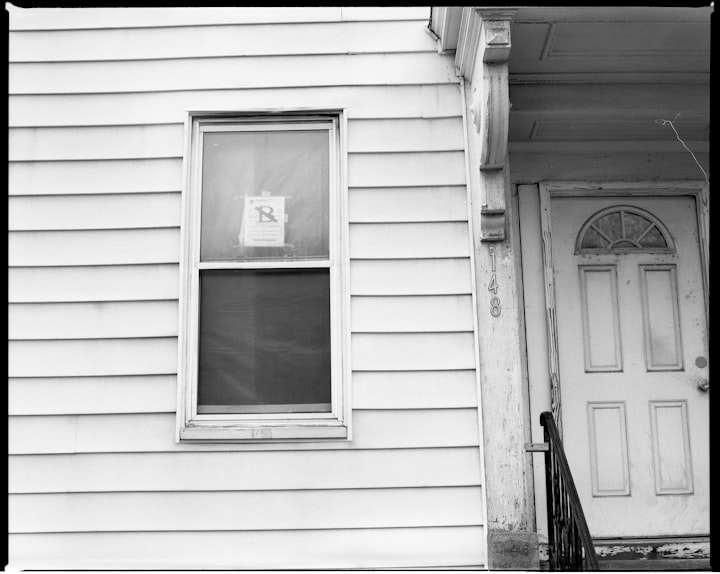What a Warning Letter from a Landlord Means
When you find a notice attached to your door, you're filled with dread and anxiety as to what this means for your tenancy? In this guide, we look at the most common notices issues by landlords and when it means an eviction.

When you receive a letter from the landlord with a notice of warning, it is usually a part of the eviction process. The notice serves as legal procedure followed in rental matters to protect both the tenant and the landlord from legal disputes.
The warning letter is usually a precursor to an eviction or it will state the ways the tenant should remedy the situation to avoid eviction. In this guide, we look at the different types of eviction notices or letters that can be issued by your landlord.
Why are Warning Letters Issued?
Landlords will issue a warning letter or an eviction notice when the tenant is breaking the lease. When you move into an apartment complex and you sign a lease, you are required to adhere to the terms and the regulations as set forth in the lease. This can include a no-pets clause, keeping noise levels down, or not causing property damage. By signing the lease, you are bound to a legal contract so breaking the terms and conditions allows the landlord to pursue the necessary legal remedies. This doesn’t always mean that the letter you find attached to the front door or the notice you receive in the mail will be an eviction. It simply means that the landlord is bringing to your attention an issue that needs to be resolved for the maintenance of a successful tenancy and the prevention of eviction.

The Types of Warning Letters
Landlords can issue different types of notices depending on the reason for the infringement. Notices can range from a first warning to correct a situation to a notice to evict the property. If you do receive a letter to evict the apartment, you will need anywhere between 3 to 30 days to move depending on your state law.
It is important to know that some landlords aren’t legally required to issue a warning or notice before terminating the lease. They can send you a letter which is the initial warning and thereafter a notice of termination.
The Notice of Termination
The notice of termination is known as the eviction notice. The purpose is to end the lease and once the tenant receives the notice, the landlord is legally able to get a court order issued to facilitate the eviction process. Tenants who are being evicted will often get a visit from the sheriff of the court who will serve them with the formal notice.
Why Landlords Issue a Warning Notice?
The reason you receive a warning letter from the landlord is to try to resolve a situation or address a problem before a final notice of termination is issued. Landlords want to try to remediate a problem before they resort to ending a lease. They understand that circumstances such as late rent payment could be due to a temporary problem especially in light of the COVID-19 pandemic. For this reason, they provide renters with the opportunity to make right on upholding their part of the lease by catching up with their rent.

But there are instances where the situation simply cannot be remedied and the only option is to terminate the lease. These situations can include using or dealing drugs on the property, noise or nuisance disturbances, and failure to pay rent after multiple warnings.
Can Landlords Evict Tenants with a Single Notice?
When landlords issue an eviction notice or notice of termination, the matter automatically goes to court. Based on an evaluation of the case, the eviction procedure will be issued and the tenant will need to vacate the property.

The period of notice is usually 30 days but in certain states such as Texas, you may only receive 3 days’ notice. If tenants do not move out of the apartment within the stipulated period, the sheriff of the court will handle the matter and will be granted the authority to evict the lessee.
Landlords can issue one notice of termination to end the lease and pursue a legal eviction if tenants have violated a term or terms of the lease agreement.
What are the Reasons for Evictions?
There are many reasons why landlords feel it is necessary to evict their tenants. At the end of the day, it is always related to breaking some part of the lease. By signing the lease, you agree to abide by the terms as set out by the landlord but if you violate one or more of these terms, the landlord has the right to evict you.
You can also learn more about evictions by reading the lease. You should find a breakdown of the instances which constitute a broken lease and the steps that can be taken to either remedy the situation or the grounds for eviction. To help you manage your lease, it is important to speak to your landlord if you are unsure of any terms that are presented. Only you understand what is expected of your tenancy can you do your best to uphold the contract.
Evictions and Rental Payments
One of the primary reasons for evictions is the late or non-payment of rent. Some landlords will provide tenants with a grace period to make up for their rent but for others, multiple late payments could indicate a red flag. If you aren’t going to be able to make your rent payment for the month, discuss this with the landlord. They may be able to help you with certain financial programs if you’ve just lost your job or received an unexpected pay cut.
Know Your Rights as a Tenant
To protect yourself against the possibility of eviction, it is important to read your lease and to understand your rights.

If you feel that you’ve been unfairly warned or served an eviction notice, it is best to get legal advice, so you know which path to take to protect your tenancy. To successfully rent an apartment, adhere to the terms of the lease and you should have no problem in achieving rental success.





Comments
There are no comments for this story
Be the first to respond and start the conversation.